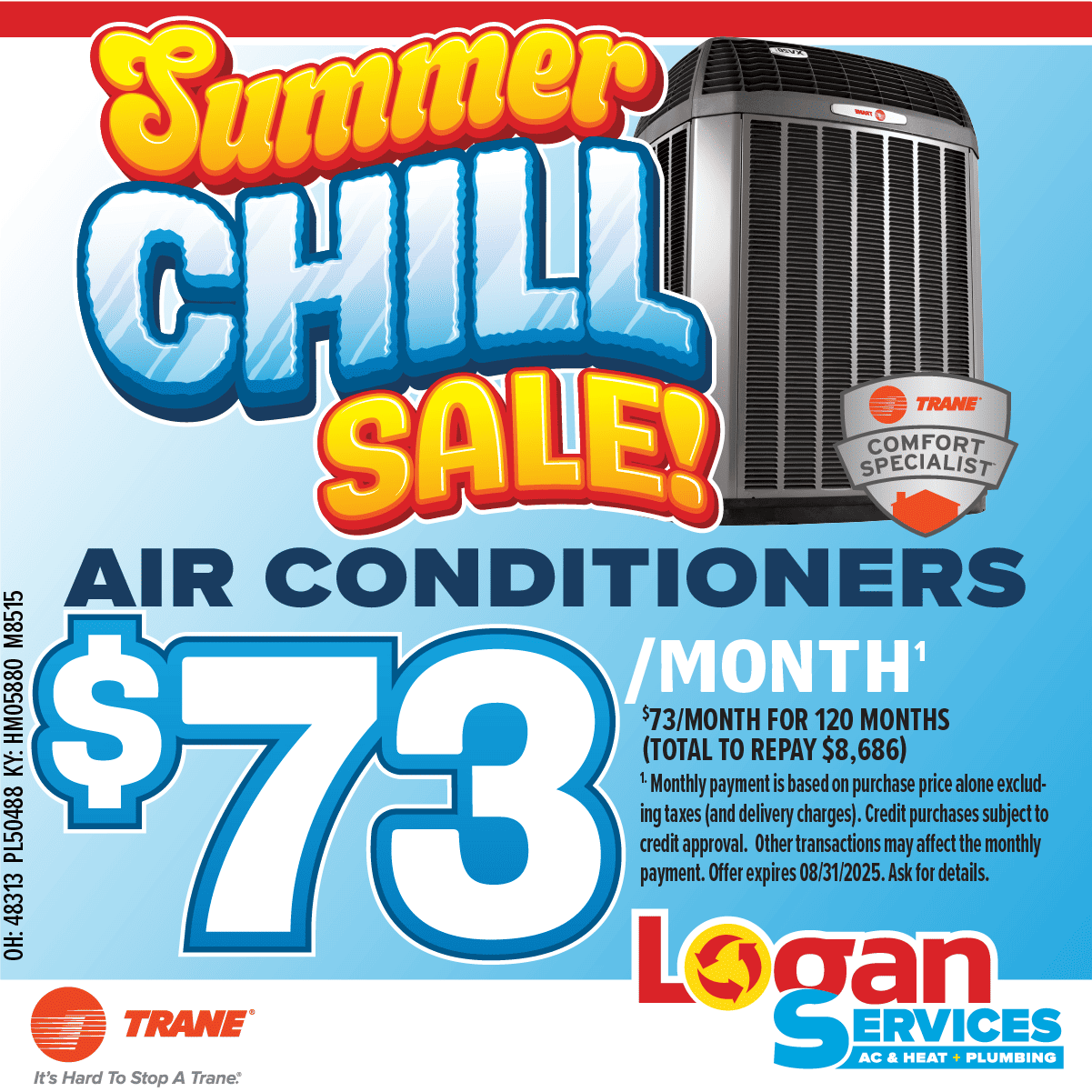Staying cool at home when temperatures rise is important for your comfort, productivity, health, and managing energy costs. Your home’s air conditioner plays a key role in beating the heat, but aging, neglected AC units waste money and lead to expensive repairs. By implementing some simple efficiency tips and best practices for using and maintaining your cooling system, you can enjoy reliable comfort on hot days while keeping utility bills affordable.
The following guide provides actionable advice on home AC efficiency.
Tips for Proper AC Maintenance
Establishing good maintenance routines is crucial to keep your air conditioning system operating efficiently for many years. Too often, home air conditioners end up failing prematurely or running inefficiently due to neglected upkeep. Adding a few air conditioning maintenance tasks to your regular household duties list promotes smooth and economical cooling comfort.
Some key maintenance tips include:
- Change air filters regularly. Clogged air filters restrict airflow, making your air conditioning system work harder to push cool air through blocked ducts. Swap disposable filters out for fresh ones every 60-90 days.
- Clear debris buildup outside. Over time, leaves, grass, and other debris accumulate around the exterior condenser unit. These prevent proper airflow and tax your air conditioner. Periodically hose off the debris.
- Have an HVAC technician annually check refrigerant levels and tune up your entire air conditioning system before peak summer heat hits your area. Refrigerant optimization and parts inspection help prevent bigger problems down the road.
- Professionally clean air ducts every 2-3 years to refresh indoor air quality and keep your system running top-notch. Dust buildup inside ductwork hinders efficiency.
By sticking to this simple seasonal maintenance routine, your air conditioner will continue pumping out refreshing, cool air for years before eventually requiring replacement. Don’t skip out on periodic tasks to promote efficient operation.
Thermostat Settings Matter: Tips for AC Saving
Your programmable thermostat serves as the command center directing your home’s cooling operation. Leveraging its capabilities fully allows you to run your air conditioning system only as needed for comfort and efficiency.
Follow these thermostat setting recommendations:
- Choose a preferred setpoint between 72°-78°F and stick to it whenever occupying your home. Just a 1-2 degree upward adjustment during air conditioning season significantly impacts energy consumption. AC units must work harder to keep up with heat measured in BTUs (British Thermal Units), which indicate how much heat an air conditioner can remove from a room per hour. The higher the BTU rating, the more powerful the air conditioner and the larger the area it can effectively cool.
- Utilize your programmable thermostat’s settings to raise temperatures 8-10°F higher whenever the house sits vacant for longer stretches. This prevents unnecessary cooling of empty rooms. Gradually step temps back down before arrival home.
- In homes with multiple AC zones, coordinate all thermostats together for optimal savings. Never drastically alter one area’s temperature compared to the rest of the home, or you’ll force the air conditioning system to overwork, correcting the imbalance.
- When purchasing a replacement thermostat, explore the added features of newer smart thermostat models. Their accompanying phone apps, detailed energy use reports, and sophisticated programming can take your AC efficiency to the next level. The premium features help justify the upgrade cost over old-fashioned units.
Getting savvy with all your programmable thermostat controls keeps your air conditioning system operating exactly when and where you need it without wasting energy cooling unused spaces.
For more information, read our guide, “What Does BTU Mean in Air Conditioning?”
Maximize Central AC Efficiency With These General Tips
Running an air conditioning system inevitably consumes significant energy, but a few adjustments around your home during cooling seasons prevent wasting money chilling unused rooms or fighting avoidable heat sources. Carefully orchestrating when and where you use cooling appliances makes central AC units or room air conditioners more efficient.
Boost your AC with these expert tips:
- Doors and Windows: Securely close exterior doors/windows to contain cooled indoor air when AC is on.
- Ceiling Fans: Let fans circulate cooled air around occupied rooms. Don’t pointlessly run fans trying to cool vacant areas.
- Window Shades: Close curtains/shades on sun-exposed windows to limit heat entering rooms and reduce AC workload.
- Avoid Heat Sources: Run ovens, dryers, and dishwashers in the mornings/evenings so AC doesn’t compete with appliance heat all afternoon.
- Upgrade Units: Consider installing modern smart AC units, allowing convenient app control and detailed monitoring, ensuring the system only runs when genuinely needed.
- Zone Isolation: Close vents/doors to unused basement/storage areas not needing active cooling. Chilling empty zones wastes money.
- Ventilation Fans: Run kitchen/bath fans sufficiently to remove odors/humidity, but don’t unnecessarily overdo lengths draining cooled indoor air.
- Winter Protection: In winter, cover the outdoor AC condenser unit with a weatherproof cover to protect components from snow, ice, and debris while not operating.
Carefully considering where and when you activate cooling systems allows focusing chilled air only where necessary without trying to manage vacant rooms or combat other heat sources pointlessly. Follow these tips diligently to maximize summer energy savings!
For more information on AC tips for winter, read our guide, “Should You Cover Your Air Conditioning Unit in the Winter?”
Small Habits That Slowly Ruin AC Systems
Many homeowners unknowingly make small but costly errors in operating and managing home air conditioning systems. These common blunders waste money, accelerate wear and tear, and require expensive professional repairs down the road.
Avoid these frequent AC mistakes:
- Neglecting maintenance: Never cleaning filters, clearing debris outside, checking refrigerant levels annually, or performing tune-ups before peak cooling season arrives guarantees eventual problems. Lack of basic preventative care ensures systems fail sooner.
- Keeping temperatures too low: Frigid settings in the 60s might feel refreshing but strain energy bills and AC equipment. Set to 72°-78° instead for sufficient comfort without overworking the system.
- Ignoring strange sounds: Unusual noises signal impending breakdowns of components. Don’t disregard squeaks, knocking, or grinding noises, assuming they will disappear. Diagnose issues promptly.
- Cooling empty rooms: Closing vents in unused rooms while cranking AC full blast in occupied areas forces imbalanced temperatures and inefficiency as systems struggle to overcome the extreme variance. Coordinate settings.
- Blocking air intakes: Indoor and outdoor AC units require generous clearance for critical airflow. Be mindful not to block floor vents or condenser coils by placing furniture, plants, or debris near sensitive intakes. Keep both units breathing freely.
Avoid making equipment work harder than necessary. Be attentive in wisely managing use, airflow, maintenance, and temperature settings.
AC Troubleshooting Tips
Even well-maintained air conditioning systems inevitably experience problems from time to time. Catching issues early and understanding potential causes helps you determine if DIY fixes are possible or if professional attention is best.
Watch for these widespread AC operation issues:
- If your AC rapidly loses its ability to cool the living room or affected zones properly, causes may include low refrigerant, dirty filters/coils, or failing parts. Don’t delay diagnosis and repairs after cooling loss, or you’ll likely face bigger bills down the road.
- Notice thick ice coating the external AC coils? This signals restricted airflow due to debris, excessively dirty filters, or refrigerant issues. Left alone, frozen coils can rupture.
- Do some rooms seem warmer than others despite having clear vents and decent airflow? Suspect aging ductwork has sprung leaks, wasting cooled air. Sealing duct leaks restores even cooling.
- Unusual new noises like squealing, loud knocking, or grinding sensations indicate forthcoming breakdowns of internal components. Strange sounds mean shut off the unit and call for service promptly.
While minor issues like dirty filters can be handled safely via DIY methods, more complex repairs to window units or central air systems are best left to seasoned HVAC technicians to avoid electrical hazards or accidental equipment damage risks. Invest in professional service and maintenance for optimal performance.
If you want to maintain the appearance and functionality of your AC system, read our guide, “How Do You Hide an Outdoor Air Conditioning Unit?”
Ensuring Healthy Indoor Air Quality with Your AC
Air conditioning provides welcome relief from heat, but can harbor irritants if not maintained properly. Many homeowners suffer perpetual stuffy noses or worse when cooling systems circulate dirty air.
Safeguard family health this summer with these air quality tips:
- Inspect AC units annually to ensure condensation drains properly without clogging.
- Install pleated filters to better capture pollen, dander, dust, and other airborne particles. Change filters every cooling season.
- Consider adding filtration accessories on AC vents for enhanced particulate removal.
- Periodically sanitize wet evaporator coils inside units if they show gunky buildup, which can interfere with airflow.
- Monitor indoor humidity levels all summer. Ideal relative humidity falls between 40–50% to inhibit contaminants.
- Professionally clean AC ductwork every few years to remove accumulated particulates that lower air quality over time.
Protect against allergen-laden airflow from negligent cooling system maintenance. Implement proactive steps for fresh, breathable air this summer.
For more information, read these related articles:
- Can You Get Sick from the Air Conditioning in Your Home?
- Can Air Conditioning Give You a Sore Throat?
- Does Air Conditioning Help Allergies?
Using Ceiling Fans for Enhanced Cooling
Ceiling fans optimally distribute cooled breezes throughout living spaces as valuable complements to air conditioning systems. The gentle wind chill effect combined with proper thermostat adjustments enables feeling comfortably cool at marginally warmer room temperatures. This allows for easing the workload placed on AC equipment.
Set ceiling unit settings to lower speeds and run the blades counter-clockwise to push air straight downwards during summer cooling months. Aim the airflow to centered positions over seating areas or toward the middle of larger rooms for widespread circulation. Avoid directing breezes right onto room occupants, which can over-chill people as air blows on them directly. Shut off fans completely when exiting rooms since trying to cool entirely vacant areas wastes energy.
Used in a strategic manner, ceiling fans help rectify stuffy zones with poor vent airflow and eliminate hot spots or dead areas not receiving sufficient chilled air from central AC vents. Just don’t overdo fan speeds or aim it in ways that make it too drafty.
Read our guides, “Do Ceiling Fans Help Air Conditioning?” and “Is Running a Fan Cheaper than Air Conditioning?” for more information.
Should AC Maintenance Be Left to Trained Technicians?
While DIY efforts tackle basic tasks like cleaning filters, clearing debris, and changing batteries in remote controls, more complex inspections and repairs are best left to seasoned HVAC technicians. Investing in regular professional tune-ups and services prevents more costly equipment failures down the road.
Ideally, have a comprehensive maintenance check-up performed yearly before the cooling season ramps up. Technicians will monitor refrigerant levels, check system pressures, inspect physical components, and catch small issues before they worsen. If budgets are tight, biannual tune-ups are wise to avoid skipping preventative care entirely.
Signs you need professional help include:
- Noticeable loss of cooling capabilities
- Unusual new sounds from outdoor units
- Visible damage from weather/debris/age
- Spiking electricity bills pointing to efficiency declines
HVAC providers offer maintenance plans with different service frequencies and emergency response inclusions. Generally, paying routine fees for preventative care seems minor, considering the high costs of unanticipated air conditioning system replacements later on.
In summary, let the experts handle intricate tasks involving refrigerants, gas lines, diagnostic computers, and electrical wiring. Investing in professional maintenance promotes optimal AC performance and longevity.
The Logan Difference
With over 50 years of heating and cooling expertise under our belt, Logan Services A/C, Heat & Plumbing stands apart from typical HVAC contractors. Our technicians undergo rigorous training covering all AC brands to excel at maintenance, repairs, and installs. But more importantly, we prioritize customer care from the first call onwards.
Our family-owned heritage means we treat clients like our own kin, not just transactions. Logan technicians take the time to explain AC issues in simple terms, explore various options matching your budget, and provide complete transparency on pricing with no surprise charges after service calls. This thoughtful approach removes the stress and confusion from having work done on complex cooling systems.
On top of superior service, our long-standing accreditation with the Better Business Bureau reflects a proven commitment to quality workmanship and accountability. We back installations with strong manufacturer warranties on Trane, Rheem, and other leading industry brands we recommend after thoroughly assessing your home’s needs.
Contact Logan Services A/C, Heat & Plumbing to handle all aspects of residential AC servicing with the excellence only 50+ years of expertise in Ohio’s Dayton, Columbus, and Cincinnati regions can deliver.
Frequently Asked Questions
How often should I change my AC air filter?
As a general rule of thumb, replace air filters every 60-90 days during peak air conditioning seasons when the unit operates daily. Monthly checkups allow gauging buildup to determine if change is needed sooner.
Should I close ceiling vents in unused rooms to save money?
No, balancing ventilation is vital. Closing too many vents strains the air handler, forcing imbalanced temperatures between zones. Instead, coordinate all room temperatures together and seal vents only in infrequently occupied spaces like storage rooms.
Can a dirty air filter cause AC failure or higher electric bills?
Yes, clogged filters mean air conditioners work significantly harder, pushing airflow against that resistance, driving up energy consumption, and taxing components. Lack of filter upkeep is a common cause of early AC failure. Replace filters per guidelines.
How do I know if my AC is low on refrigerant or if leaks need repair?
Signs of low refrigerant or leaks include lack of cooling, intermittent functionality that rapidly worsens over time, visible oily spots near lines, higher than normal energy bills indicating inefficiency, or freezing of external AC coils due to shifted refrigerant pressure issues.




















